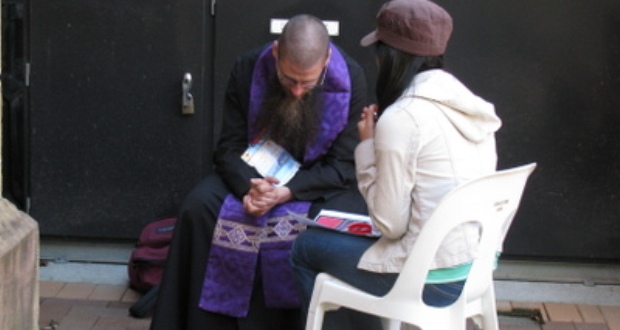His Mercy Endures Forever

Give thanks to the Lord for He is good for his mercy endures forever. This is one of my favorite statements in the Bible and many psalms begin with this line, give thanks to the Lord for He is good for his mercy endures forever! Some of these psalms include 106, 107, 118 and psalm 136. All of these are psalms of great encouragement as they tell of the wonders that God has worked in the lives of different people throughout history. If we were to examine our lives, we too will also make that proclamation that the mercy of God endures forever and that we too have seen the mercy of God in our lives.
We are in the Year of Mercy where His Holiness Pope Francis announced at Jubilee year of Mercy. During this year, it is the deepest desire of Pope Francis that many will come to encounter the mercy of God upon their lives. In speaking about the Year of Mercy, Pope Francis said, I really believe that by recognizing and experiencing how incredibly patient and forgiving God is with each one of us in our imperfections and failings, we will become even more patient and forgiving with those whom we live, work, and interact with every day.
There are many people in our society – and I am sure that you know persons – who are in urgent need of encountering the mercy of God. There are countless people in the world who continue to dwell in darkness because of their past sins. By the grace of God and through the power of His Holy Spirit, these people will come out of the darkness of their past and of their sins, and into the wonderful, glorious light of the mercy of God in Christ Jesus.
Why a Year of Mercy? Before we look at the why, let’s take a brief look at what; what is mercy? Mercy is defined as compassion or forgiveness shown towards someone whom it is within one’s power to punish or to harm. We are the ones who are desperately in need of mercy and compassion, and God is the one who has the power to punish us for our sins. Instead, he chooses to forgive us if only we repent of our sins. Not only does he choose to forgive, but he constantly wait for us. God has no desire to punish us. He has no desire that anyone should be lost but rather, that all should come to eternal life.
The Catechism of the Catholic Church tells us that “the Gospel is the revelation of Jesus Christ of God’s mercy to sinners. The angel announced to Joseph: you shall call his name Jesus, for he will save his people from their sins. The same is true for the Eucharist, the sacrament of redemption: this is my blood of the covenant which is poured out for many for the forgiveness of sins.”
I am always amazed whenever I read Matthew 1: 21 that tells us that “you shall call his name Jesus because he is the one who will save his people from their sins.” I am amazed because it does not say that Jesus will save us from corrupted government, it does not say that he will save us from diseases, it does not say that he will save us from poverty, it does not say that he will save us from all of these things except one; he will save us from our sins. What that says is that the one thing that will keep us from experiencing the eternal love of God is not corrupt government, it is not poverty, it is not sickness or disease. Rather it is our sinfulness, and this is why Jesus came. He is the face of God’s mercy and he came to show God’s mercy to all.
[FreshBundle bundle_id=”year_of_mercy_001″ layout=”grid” columns=”3″ custom_title=”Year Of Mercy Bundle” custom_buy_button=”Buy Now And Save” custom_cta=”” target=”blank” ]
The Catechism of the Catholic Church continues; “God created us without us: but he did not will to save us without us.” What is this is saying here is that God did not need any assistance to create us. However we need to cooperate with God for our salvation.
To receive His mercy we must admit our fault. If we say we have no sin, we deceive ourselves, and the truth is not in us. In fact not only are those who claim to have no sin deceiving themselves but they’re also pleasing themselves completely outside of God’s mercy because to say that one has no sense is also to say that one does not have any need for a Savior.
The Catechism continues: “if we confess our sins, he is faithful and just and will forgive our sins and cleanse us of all unrighteousness.” During this year of mercy, it is the hope of Pope Francis that many who are in darkness would come into the light of Christ through the sacrament of confession, acknowledging their sinfulness, and therefore their need for salvation.
During this very special Year of Mercy, many sins – even the very serious ones – will be forgiven. Not only will these sins be forgiven, but the consequences of them would be erased. In other words, under normal circumstances when one goes to confession and confesses their sins, forgiveness for the offenses is given. God’s mercy is extended through the priest. However the consequences of their sinful actions remain. During this Year of Mercy, not only will sins be forgiven, but indulgences will also be granted, erasing the consequences of the sins committed. (Please refer to the article on indulgences.)
Now I know that there are many who would challenge this authority and question where it comes from. If you are one of those, then please let me refer you to Matthew 16: 13 – 20 where Jesus asked his disciples who do people say I am? It was Peter who spoke out and said, you are the Christ the Son of the Living God. As a result of Peter’s profession of faith, Jesus said to him, “Simon son of Jonah, you are a happy man! Because it is not flesh and blood that revealed this to you but my Father in heaven. So now I say to you: you are Peter and on this rock I will build my Church. And the gates of the underworld can never hold out against it. I will give you the keys to the kingdom of heaven: whatever you bind on earth shall be considered bound in heaven; whatever you loose on earth shall be considered loosed in heaven.” That is where the authority comes from and it is through the keys given to Peter that the Catholic Church can now have a Jubilee Year of Mercy.
Everyone is therefore encouraged to take this Year of Mercy very seriously, and to avail themselves of the graces that God will lavishly pour out upon us because he is Mercy, and his desire is that all will be saved.
Ref: ccc 1846 – 1847





